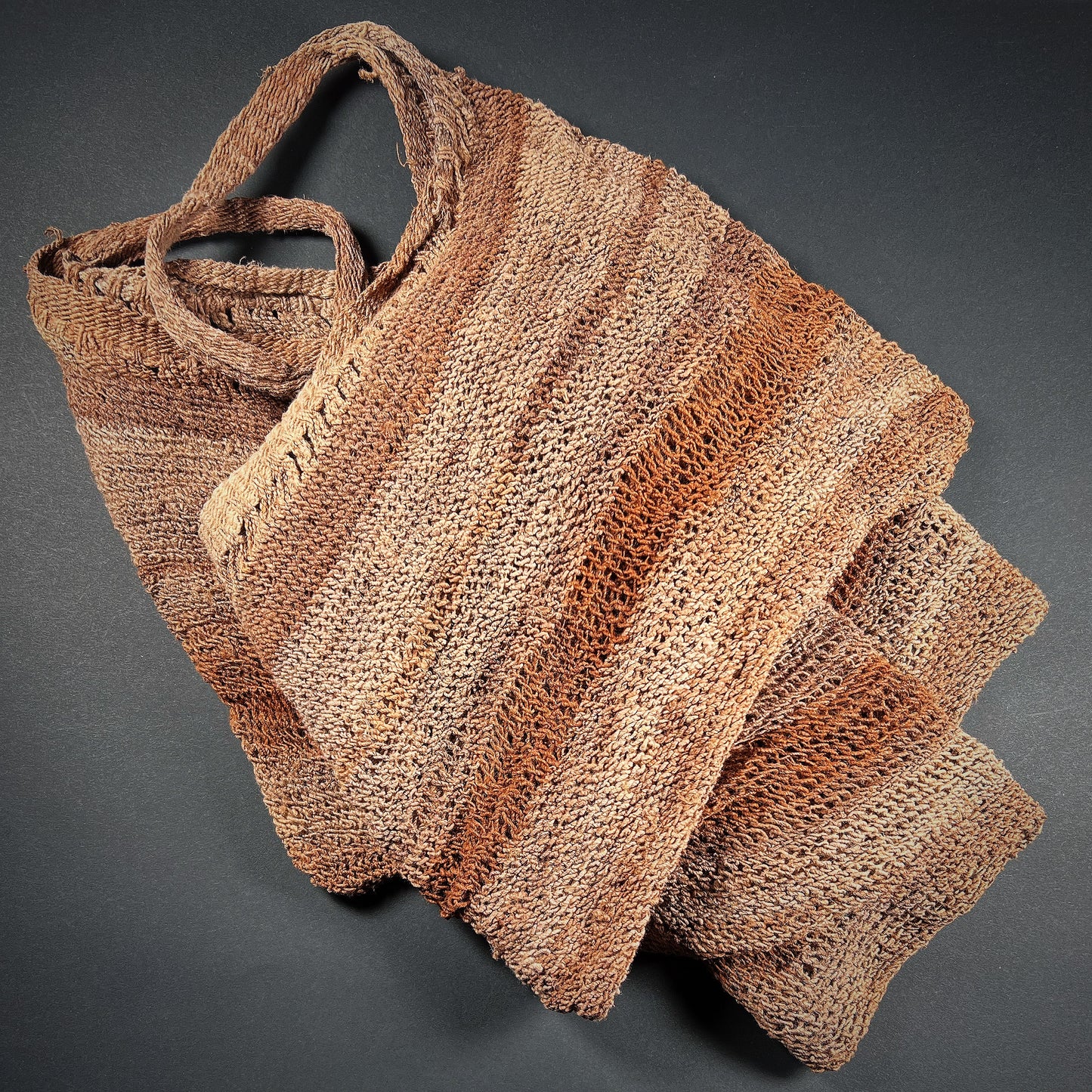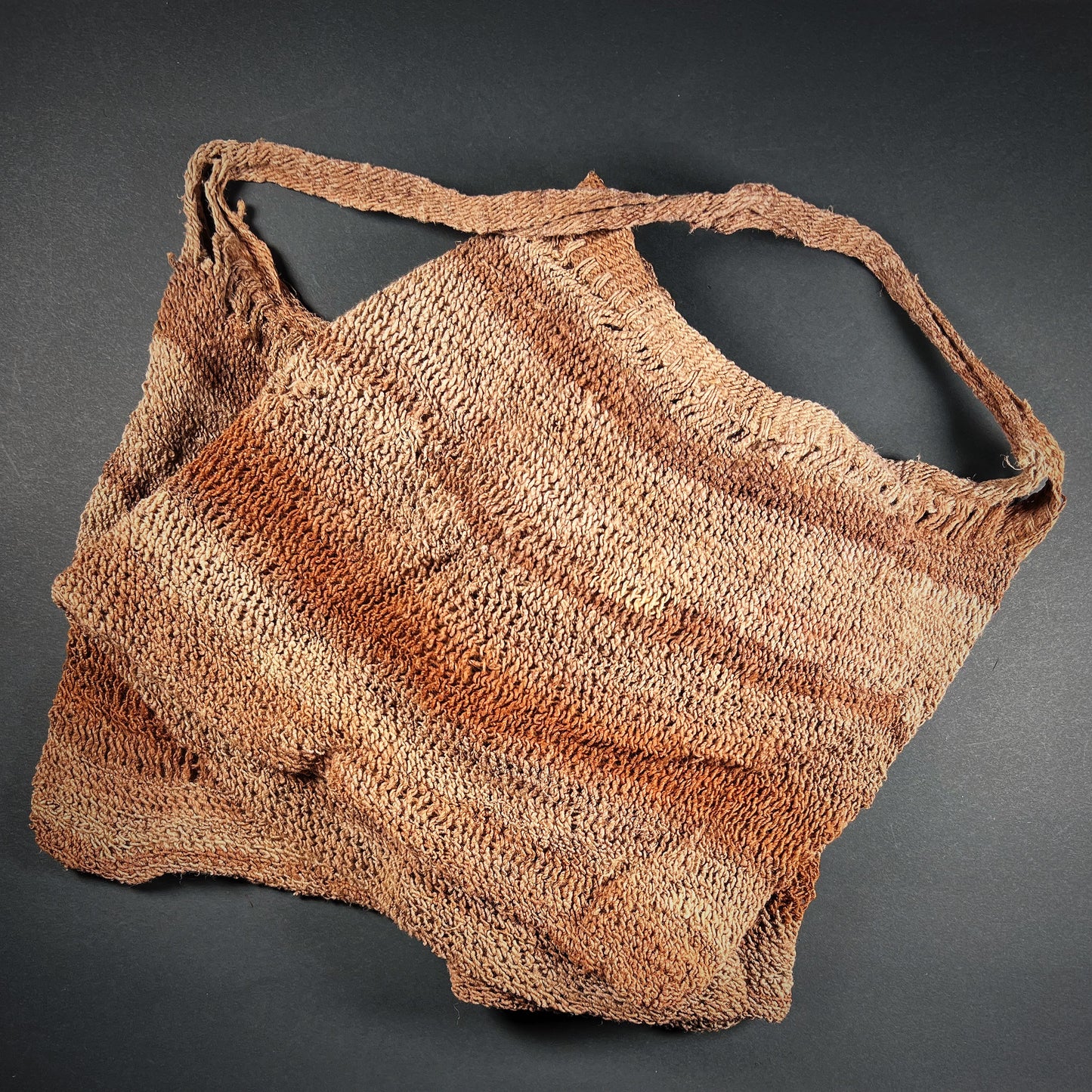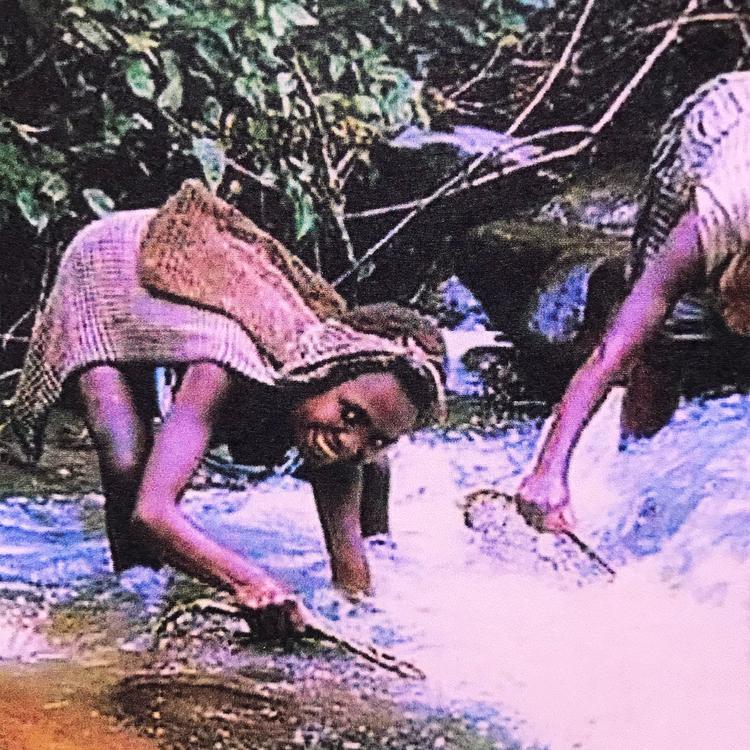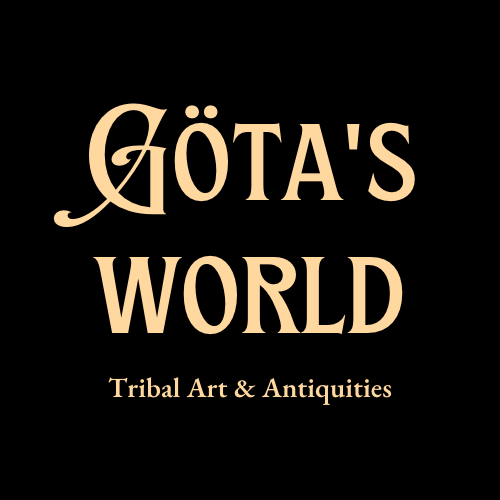Korowai Tree Bark Fibre Bag Ainop
Korowai Tree Bark Fibre Bag Ainop
Couldn't load pickup availability
Korowai People, Mid-20th Century, Southeastern Papua, Indonesia
A striking and generously sized hand-knotted tree-bark fibre bag (ainop—also known regionally as noken or bilum) adorned with horizontal bands of natural pigment. Crafted entirely by hand from carefully processed bark fibre, this bag exemplifies the exceptional skill and cultural significance embedded in Korowai textile traditions. Such net bags served as indispensable multipurpose carriers—used to transport garden produce, river catch, firewood, personal items, and even infants. Women typically wore the bags suspended from a forehead strap, while men carried them from the neck.
The making of an ainop involves a demanding sequence of fibre preparation: selected branches or bark are heated, soaked, split, dried, and twisted into a strong cord that may be tinted with natural dyes. The resulting string is then knotted into an open net using highly specialised techniques that take months, if not years, to master. Throughout Papua, noken bags carry deep symbolic meaning, representing life, peace, maturity, and fertility—especially for women, whose social standing is closely tied to their proficiency in crafting them.
The Korowai (or Kolufo) inhabit one of the most remote rainforest regions of southeastern Papua, living in small clan-based communities and isolated family homesteads. Their iconic elevated tree houses, built high above the forest floor, protect against flooding, pests, and rival groups. Until first documented contact in the mid-1970s, the Korowai lived with virtually no awareness of the outside world. Subsisting largely on sago starch, supplemented by hunting and fishing, they maintain a sophisticated forest-based knowledge system and a material culture shaped entirely from the resources of their environment.
This beautifully made ainop is an impressive example of Korowai craftsmanship—functional, symbolic, and visually compelling. A superb ethnographic textile reflecting the ingenuity and cultural identity of one of Papua’s most remote rainforest peoples.
Good condition. Age-related wear and signs of use. Loose threads. Stains. Faded colours. Size approx. 85,0cm x 29,0cm.
Provenance: From a Dutch private collection; reportedly originally from the holdings of a now-closed ethnographic museum and foundation in the Netherlands.
References and further reading:
The Korowai of Irian Jaya: Their Language in Its Cultural Context, Oxford University Press, Gerrit J. van Enk & Lourens de Vries, 1994.
Spirits and friends: expletive nouns in Korowai of Irian Jaya, Lourens de Vries, Tales of a concave world: Liber Amicorum Bert Voorhoeve, 1995, 178-188.
Korowai people: Papua's pint-size, treehouse-living cannibals, Jeffrey Hays, (https://factsanddetails.com/indonesia/Minorities_and_Regions/sub6_3j/entry-4039.html)
Sleeping with Cannibals, Paul Raffaele, Smithsonian Magazine, September 2006.(https://www.smithsonianmag.com/travel/sleeping-with-cannibals-128958913/?c=y&page=3#ixzz0cJYQkBI3)
Life up in a Korowai tree house, Stichting Papua Erfgoed, 2001-2021. (https://www.papuaerfgoed.org/en/theme/life-korowai-tree-house)



-
Shipping
The shipment will be prepared in the course of 3-5 days and dispatched via Posti Group Oyj or purchased item(s) can be picked up from our shop during the store's opening hours (Tarkk’ampujankatu 4, 00140, Helsinki, Finland). Within the Finland, all items are shipped via Posti Group Oyj unless otherwise requested. We pack the items carefully and mainly in recycled materials because we want to save nature. You will receive the tracking number for your items by e-mail.
-
Returns
Returns and exchange will be accepted within fourteen days (14) of receipt at the purchaser’s cost to include freight and packaging. Items must be returned in the same condition as when they were shipped, and will not be accepted if damaged or altered in any way. Please inform us via email (info@gotanmaailma.fi) or by calling +358408408352 before sending. We do not accept returns more than 14 days after delivery.



